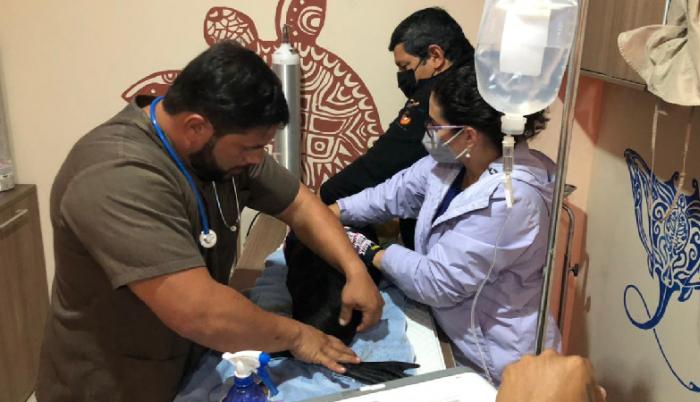The Ecuadorian Ministry of Environment, Water and Ecological Transition, reported this Tuesday that it coordinated the repatriation and transfer of a juvenile Galapagos Fur Seal (Arctocephalus galapagoensis)
EFE AGENCY
Updated 07/20/2021 15:09

The Ecuadorian Ministry of Environment, Water and Ecological Transition reported this Tuesday that it coordinated the repatriation and transfer of a juvenile Galapagos Fur Seal (Arctocephalus galapagoensis), which was out of its habitat and had been stranded on La Cruz Beach, in Tumbes (Peru).
The veterinarian Pedro Soto, from the Valdivia Marine Park, assured that blood samples, ultrasounds and X-rays were taken of the specimen, which was medicated in order to determine its clinical status and in order to carry out the corresponding treatment, ensuring its recovery and rehabilitation.
Through ministry personnel, with the accompaniment of the biologist Mayra Estrella, head of Wildlife in the province of El Oro (bordering with Peru), the fur seal was transferred to the Valdivia Marine Park in the province of Santa Elena for its accommodation and review.
The institution specified in a statement that the biosecurity, transport and care standards were met to safeguard the integrity of the specimen.
This action was articulated with the support of the Agency for the Regulation and Control of Phytosanitary and Zoosanitary, personnel from the Environment of Peru and the Ecuadorian consulate.
According to the ministry, some specimens of the Galapagos Fur Seal (Arctocephalus galapagoensis) have been previously registered outside the archipelago, on both Ecuadorian, Peruvian and Colombian beaches.
This species is classified as endangered according to the IUCN Red List of Threatened Species and the Red Book of Mammals of Ecuador.
Read the original coverage from Expreso Ecuador at https://www.expreso.ec/actualidad/lobo-peletero-galapagos-encontrado-peru-recibe-atencion-ecuador-108642.html
Informing and sharing news on marine life, flora, fauna and conservation in the Galápagos Islands since 2017
© SOS Galápagos, 2021
